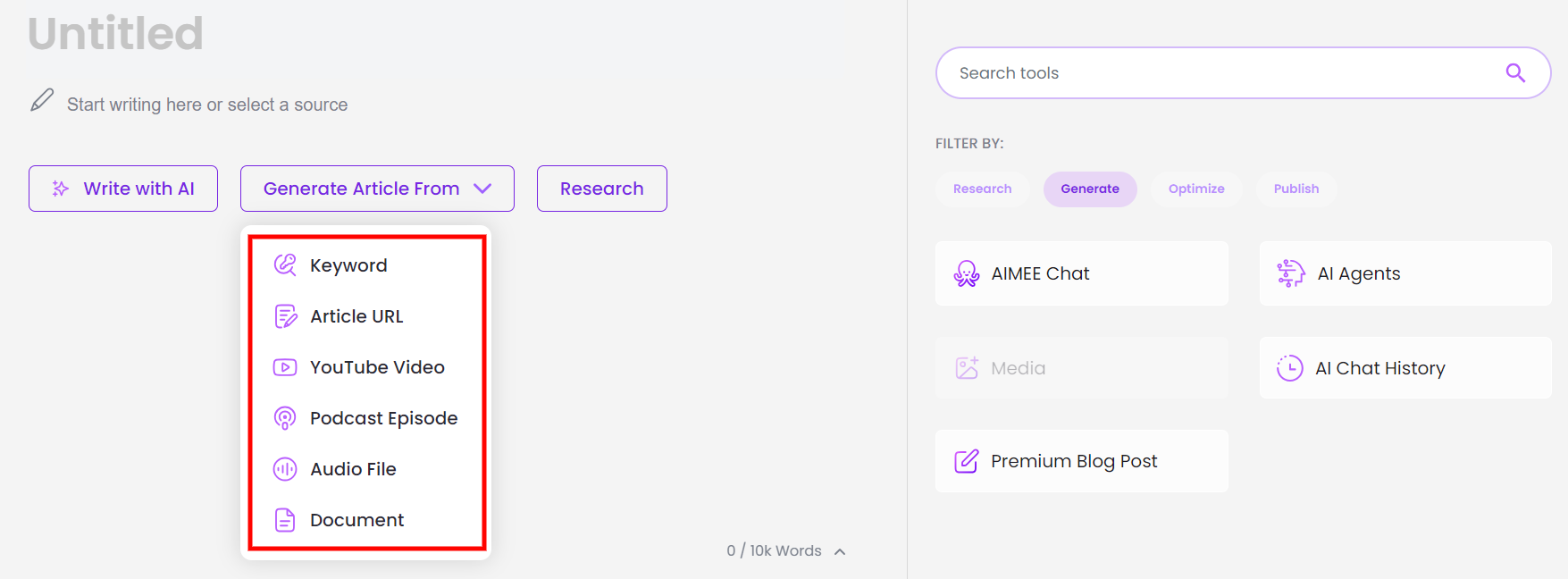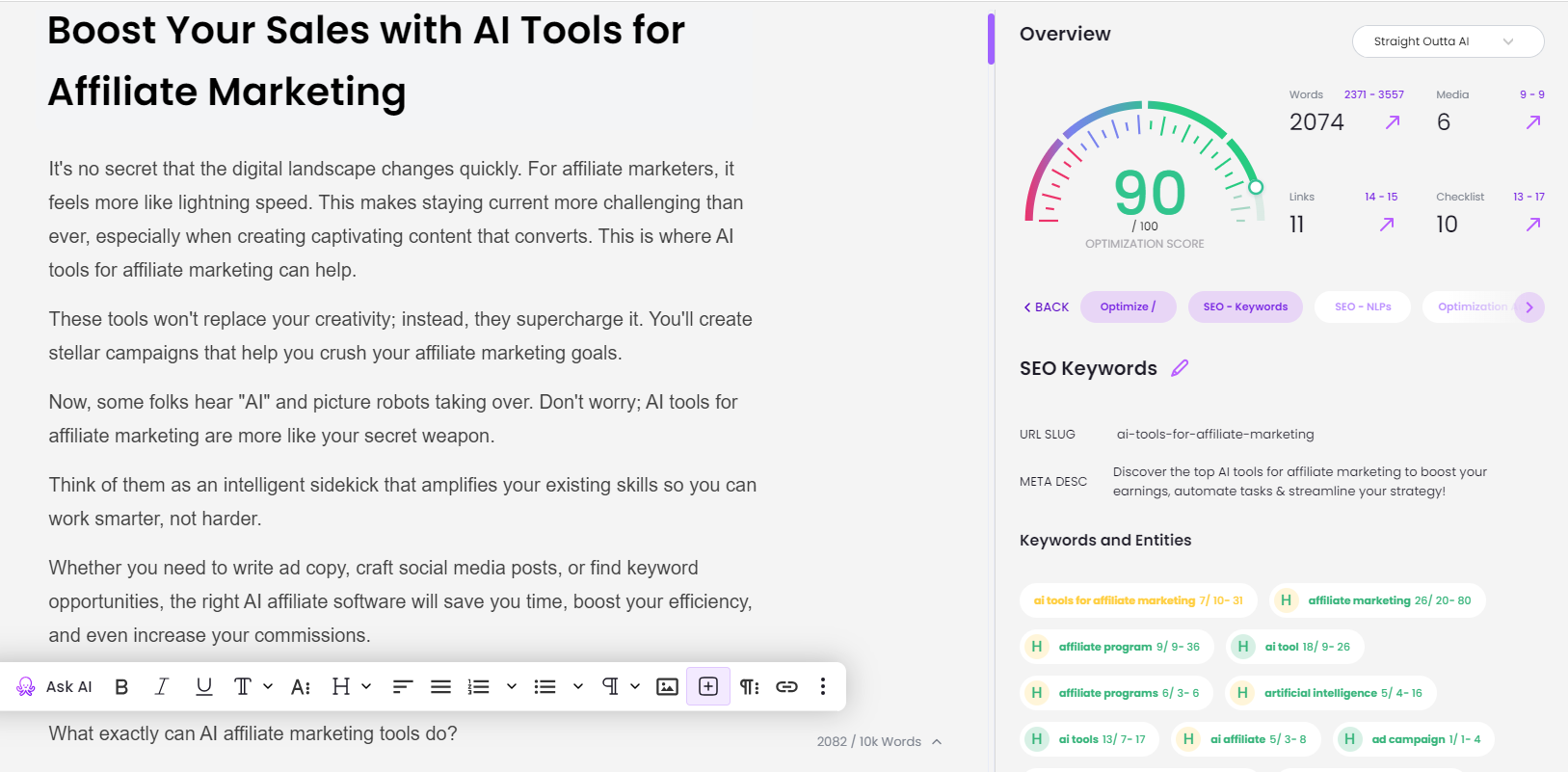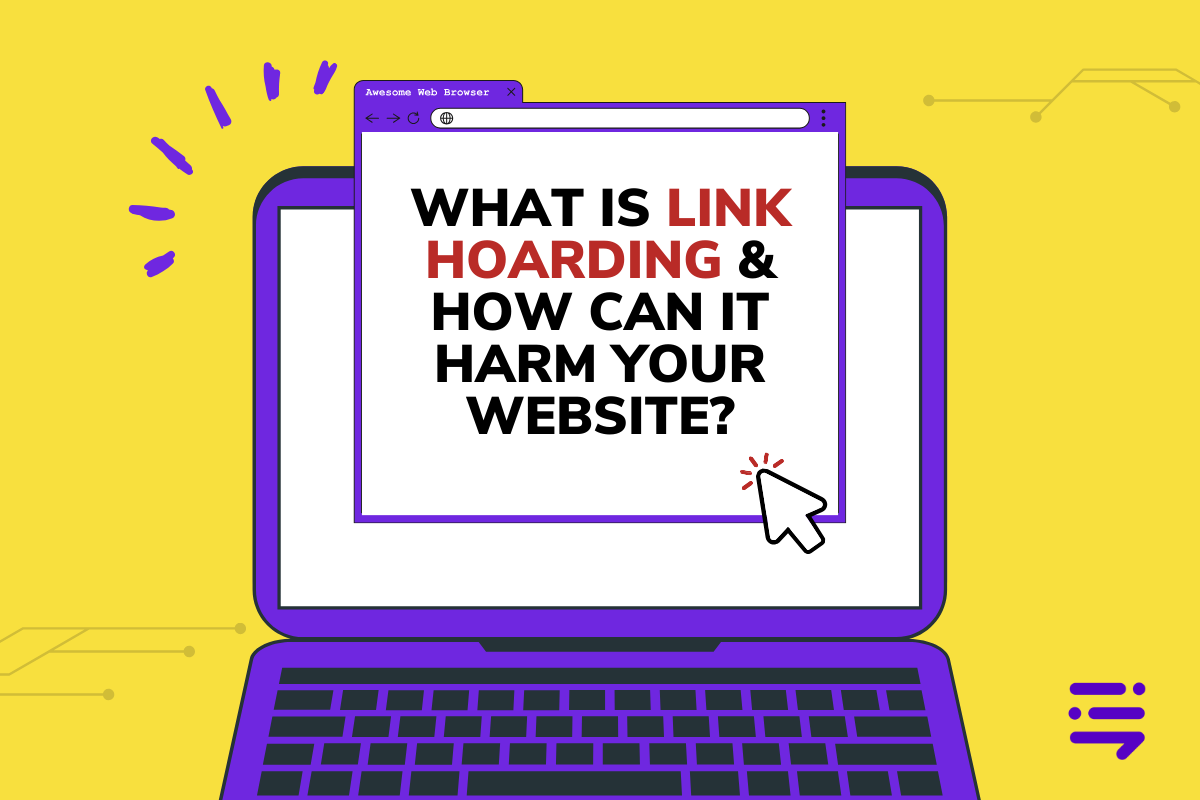Link hoarding might sound like a badge of honor for any website owner obsessed with ranking. But, in the vast and intricate world of Search Engine Optimization (SEO), it’s actually a tactic that can hurt your website’s ranking.
Why is that, and what exactly is link hoarding?
Table Of Contents:
- What is Link Hoarding?
- How to Improve Link Equity
- Are No-Follow Links Considered Hoarding?
- Link Hoarding is a Symptom of a Larger SEO Problem
- FAQs: Link Hoarding
- Conclusion
What is Link Hoarding?
Simply put, link hoarding is the practice of getting a lot of inbound links to your site without linking back to other websites. It’s like building a fortress around your content and refusing to let any “link juice” escape.
Websites use this tactic to try and improve search engine rankings. In the early days of SEO, this method was somewhat effective. But times have changed and search engine algorithms like Google have gotten smarter.
Why is Link Hoarding Considered Bad for SEO?
Link hoarding is frowned upon by SEOs primarily because it undermines the principles of quality, relevance, and user experience that search engines like Google prioritize.
Sacrificing Quality: Search engines favor high-quality, relevant backlinks over a large number of low-quality links. Link hoarding focuses on accumulating as many links as possible without considering their quality or relevance, which can harm a site’s credibility.
Irrelevance: Link hoarding often results in links from unrelated or spammy websites. These irrelevant links do not contribute to the site’s authority in its niche and can confuse search engines about the site’s true relevance and focus.
Negative User Experience: The ultimate goal of SEO is to improve the user experience by providing valuable, relevant content. If your website is engaged in link hoarding, visitors may find the content less trustworthy — which can lead to higher bounce rates and lower engagement.
Link hoarding is a short-sighted strategy that goes against the principles of effective SEO. It risks search engine penalties, damages user experience, and ultimately undermines the credibility and authority of a website.
What Happens When You Engage in Link Hoarding
Search engines want to provide a positive user experience to their searchers. This includes delivering relevant, high-quality content that also includes internal and external links. Providing both internal and external links gives searchers the most complete overview of a topic.
So, when a website participates in link hoarding, it can raise red flags. It gives the impression that the website owner is more interested in boosting their rankings rather than offering their visitors relevant, helpful information.
Search Engine Penalties: Engaging in link hoarding often involves manipulative tactics that violate search engine guidelines. This can result in penalties, such as lower rankings or complete removal from search engine indexes.
Reduced Visibility: Penalties and lower rankings directly lead to reduced visibility in search engine results pages (SERPs). This means less organic traffic, fewer visitors, and potentially lower revenue for the site.
Loss of Credibility: A site with a large number of low-quality or irrelevant backlinks can lose credibility with both search engines and users. Search engines may view the site as trying to manipulate rankings, while users may associate the site with spammy or low-quality content.
Waste of Resources: Time and resources spent on link hoarding could be better invested in creating high-quality content, building genuine relationships with other websites, and earning natural, authoritative backlinks that contribute positively to SEO.
Short-Term Gains, Long-Term Losses: While link hoarding might provide short-term boosts in search engine rankings, the long-term consequences are typically negative. Search engines are constantly updating their algorithms to detect and penalize manipulative practices, meaning any temporary gains are likely to be lost over time.
How to Improve Link Equity
While link hoarding sounds counter-intuitive to good SEO, there are several ways to build link equity that Google finds more favorable.
One way to build a solid backlink profile is through inbound links. Building backlinks is great for driving referral traffic to your website and enhancing your search engine rankings.
Some strategies for acquiring backlinks ethically include:
- Guest Blogging: Guest posting on other websites allows you to provide your insights, thought leadership, and expertise to a new audience. In exchange, you typically receive a backlink back to your website.
- Broken Link Building: Find broken links to sites relevant to your industry and notify the owner. You can then recommend they link back to your website as a replacement.
- Content Marketing: Creating high-quality, original content is what attracts traffic and convinces other website owners to link back to your website. Focus on informative articles, blog posts, engaging videos, or how-to guides relevant to your industry and ideal customers.
- Resource Pages: Consider adding resource pages to your website. You could include external links to government organizations, relevant studies, industry books, or helpful tools for your target customer. Just make sure to add your website to online directories to find out who is also linking to you.
Creating top-notch content that attracts quality backlinks can be a time-consuming (and expensive) task. But with BrandWell, you can keep your content calendar full without breaking the bank.
BrandWell can generate hundreds of high-quality, long-form articles for your blog, website pages, and guest posts — on just about any topic under the sun. And you have six ways to do it:
- Type a long-tail keyword
- Enter a YouTube URL
- Enter a podcast URL
- Enter an existing article URL
- Upload an audio file
- Upload a Word, PowerPoint, or PDF file

Here’s an example of a 2000-word article generated by BrandWell from a single keyword input:

With an SEO score of 90 straight out of AI, your draft only needs a little tweak and proofreading and it’s good to go!
Are No-Follow Links Considered Hoarding?
Google’s John Mueller recently debunked a common SEO myth: that using the “nofollow” attribute on links helps you hoard PageRank.
In a Twitter exchange, he clearly stated that “you don’t hoard anything when you make links nofollow.”
Sometimes referred to as PageRank hoarding, siloing, or PageRank sculpting, this practice is used by website owners to manipulate how Google distributes link equity internally by strategically using the nofollow attribute.
However, Mueller has dismissed this idea, previously stating that internal PageRank sculpting is a waste of time.
Mueller suggests that the overuse of nofollow links might stem from a lack of trust in writers, speculating that some websites might be overly cautious about potential link-selling schemes.
Link Hoarding is a Symptom of a Larger SEO Problem
Many websites inadvertently participate in link hoarding without even realizing it.
Link hoarding often signals a lack of high-quality, valuable content that naturally attracts backlinks. Instead of focusing on creating great content, the site might be compensating by accumulating as many links as possible. This often points to a poor content strategy, where the site lacks a clear direction, resulting in irrelevant or low-quality content that doesn’t earn the kind of backlinks that matter.
Another problem is a short-term focus. Sites engaging in link hoarding are often looking for quick wins rather than building a sustainable, long-term SEO strategy. This approach can lead to inconsistent traffic and rankings over time.
It also shows a disregard for search engine guidelines. Manipulative link-building practices like link hoarding can result in penalties, causing long-term harm to the site’s reputation and search rankings.
There’s also the issue of overemphasis on link building at the expense of other important SEO factors. When a site prioritizes accumulating links above all else, it often neglects crucial elements like on-page optimization, technical SEO, and user experience. This imbalance can undermine the effectiveness of the entire SEO strategy.
Link hoarding might also demonstrate a lack of SEO expertise. Using outdated or black hat techniques often stems from a lack of knowledge about modern, effective SEO practices. This can lead to the use of tactics that are not only ineffective but also potentially harmful.
Ultimately, link hoarding suggests a systemic reliance on manipulative tactics, indicating a fundamental misunderstanding of how to build and maintain organic search engine rankings.
To address these issues, it’s crucial to focus on creating high-quality content, following white hat link-building practices, and building a sustainable, long-term SEO strategy. By addressing these root causes, a website can achieve more stable and effective SEO results.
FAQs: Link Hoarding
Why is link hoarding bad for SEO?
The main reason why link hoarding is considered bad is because it can affect the user experience on your site. When a reader can click on links (internal or external) relevant to the topic they are learning about, they are far more likely to remain on a site and click on other pages or links. This decreases the bounce rate and signals to Google that this content and site offer genuine value. Sites without any outgoing links might frustrate site visitors.
Is my website being punished by Google because I am link hoarding?
Not necessarily. But Google might see this as an indicator of black hat SEO tactics. If this is the case, Google might lower your rank or give you a manual action penalty. You will have to fix the issues and then submit your website for review to have the penalty removed.
Conclusion
When done correctly, link building can have an immensely positive effect on how high your website ranks in search.
But link hoarding is one SEO tactic you are better off avoiding to nurture an authoritative and ethical website.
While link hoarding might seem like a quick fix for boosting your site’s search engine rankings, it’s ultimately a flawed strategy that can lead to significant penalties and long-term harm.
Instead of relying on manipulative tactics, focus on creating high-quality, valuable content that naturally attracts genuine backlinks.
Remember, quality always trumps quantity in the world of SEO.




